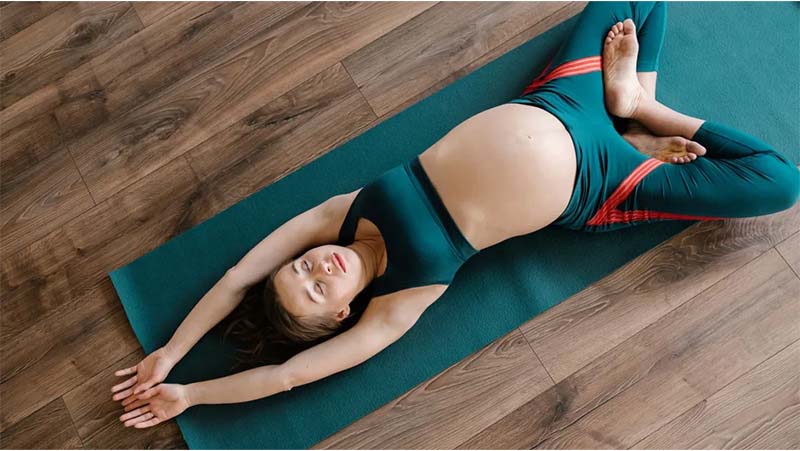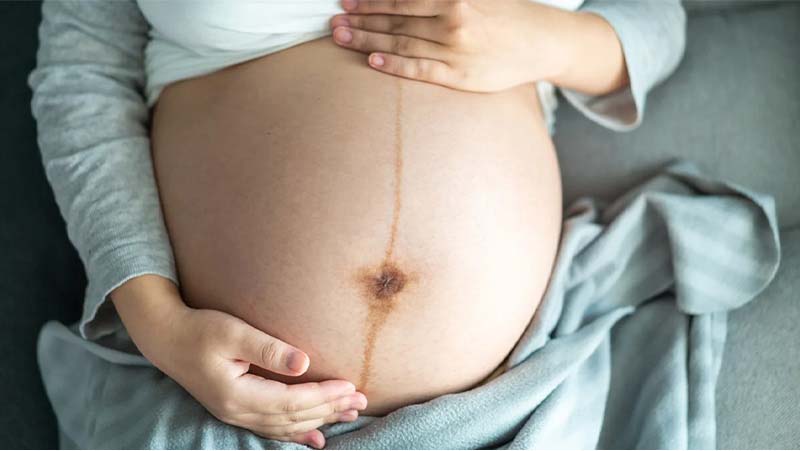Pregnancy is a special time in every woman's life when she walks the path towards motherhood. This exciting journey often seems to be tough on the body. Various things change during pregnancy, like— the way your body balances itself with all that weight, how the organs make room for your baby to grow, and whatnot.
Therefore, a little discomfort is normal, but others might be a sign of certain health problems. Knowing about these body aches and discomforts when pregnant can help you make your pregnancy journey much easier.
Causes of Pregnancy Body Aches
Throughout your pregnancy, hormonal changes prepare your body for your baby’s birth, which may result in body aches and pains. When it comes to body aches in pregnancy, the most common complaint by almost 60 percent of pregnant women is definitely experiencing back pain.
A few first-time moms also experience abdominal discomfort during the early stage of their pregnancy. These abdominal pains also known as round ligament pain, are related to the expansion of the uterus that generally resolve by the second trimester.
However, the causes leading to pregnancy aches differ from trimester to trimester.
First Trimester Pregnancy Ache Causes

Hormonal Changes
During your first trimester, the level of progesterone hormone rises quickly, relaxing your muscles and ligaments near the pelvis. Whereas, the other hormone called relaxin helps with the implantation of the eggs and prevents contractions during early pregnancy. As you move towards your due date, relaxin hormones tend to soften the cervix and relax pelvic ligaments preparing your body for the delivery. These hormonal changes affect your spinal ligaments, causing postural changes, instability, and lower back pain.
Stress
While pregnancy is undoubtedly an exciting journey with lots of physical and hormonal changes, it can also bring along stress and anxiety for a mom-to-be. Being stressed not only triggers your pregnancy mood swings but also your mental and physical well-being. It can also lead to physical discomfort like stiffness, headaches, tiredness, and muscle pain.
Second and Third Trimester Pregnancy Ache Causes
In the second and third trimesters, the uterus expands to fit in your growing baby leading to the following discomfort.
Backward Leaning
As your baby starts to develop and gets heavier in your belly, the balance changes, and you may tend to tilt backward to maintain a firm and steady posture especially while walking. However, leaning back to keep your body aligned puts more pressure and stress on your back muscles, causing pain and stiffness in the lower back.
Separation of Muscles
Your belly has two muscle bands that connect in the middle, helping support your spine and back. During pregnancy, the growing baby pushes against these muscles, making them stretch sometimes resulting in separation known as diastasis recti.
In the later months of the pregnancy, some moms-to-be may notice a bulge or "pooch" in their belly meaning the muscles are separating to make space for the growing baby. As these muscles stretch, they become weaker, increasing the risk of back or low-back injuries and pelvic pain.
Weight Gain
Gaining extra weight during pregnancy is normal and equally important for both the mother and the child. However, putting on these extra kilos can cause pain in the lower back and joints.
According to the Centers for Disease Control and Prevention (CDC), it is suggested that women gain a specific amount of weight based on their weight before pregnancy—
- 11–20 lb if obese
- 15–25 lb if overweight
- 25–35 lb if a healthy weight
- 28–40 pounds (lb) if underweight
Some Common Discomforts During Pregnancy
- Headaches
- Fatigue
- Change in breast size
- Nausea and dizziness
- Swelling in hands and feet
- Bleeding gums and nosebleeds
- Skin changes
- Unpredictable uterine contractions
- Frequent Urination
- Heartburn or indigestion
- Vaginal discharge
- Trouble sleeping, Insomnia
- Constipation
- Abdominal and leg cramps
How can I Relieve Pain and Body Aches from Pregnancy?

Back pain during pregnancy might seem a little difficult to avoid, but there are certain ways to ease it a bit.
Following are some tips for relieving back pain during pregnancy—
- Apply a warm compress. It relaxes your tight muscles and reduces inflammation.
- Stretching your lower back regularly works great.
- Avoid wrong sitting postures.
- Consider getting prenatal massages to enhance movement, relax tight muscles, and reduce stress.
- Manage stress by practicing prenatal yoga, meditation, and other mindfulness techniques.
- Ensure you get enough sleep.
- Sleep on your side and also find yourself the right pregnancy pillow for that additional support
ELI&ELM SPECIAL OFFER!
Preventing Pregnancy Body Aches and Discomfort
- Performing exercises that are suitable during pregnancy.
- Wearing flat and comfortable shoes with arch supports.
- Keeping a healthy weight during pregnancy.
- Not lifting heavy things that are too heavy.
- Not standing for too long without breaks.
- Keeping good posture.
- Avoid sleeping on your stomach. Knowing how to sleep is extremely crucial for pregnant women.
When to See a Doctor
It is extremely common to feel some kind of pain and discomfort during pregnancy but letting your doctor know about everything is crucial. If you have severe pain, avoid moving too much. Remember, constantly sitting or standing might also increase the discomfort. So changing positions is important. Call your doctor if you notice swelling or redness in your legs or any sort of vaginal bleeding.
Remember, pregnancy pains usually occur only in a particular part of the body and normally do not have any other additional symptoms like chills or fever. If you have any of these symptoms, it might be a cold or flu that might need immediate attention.
The Bottom Line

We all know how beautifully our bodies can handle different pregnancy challenges. Even though it might feel a little difficult to handle these pregnancy discomforts, it is important to know that they are completely normal when going through a healthy pregnancy.
Remember to be patient with your body, take enough rest, and most importantly stay hydrated. Take care of yourself so that your body does the same for you and your baby.












